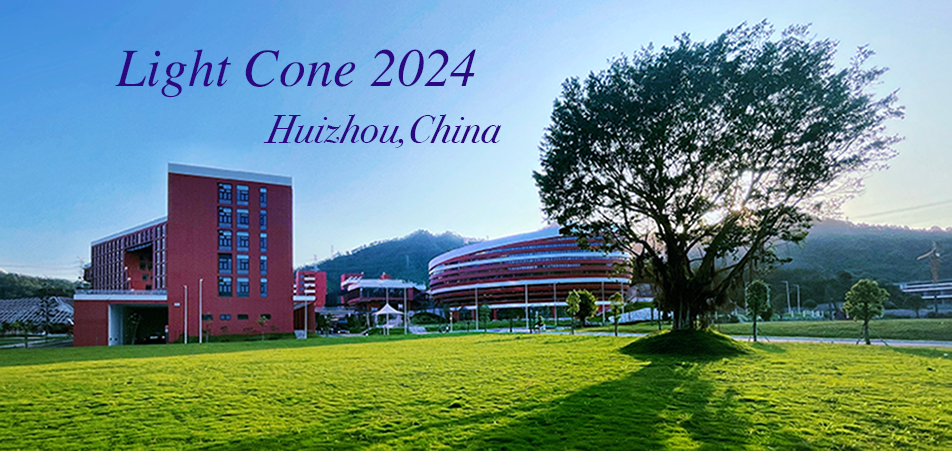Speaker
Description
We present the first systematic investigation of the Lorentz covariance of the charge form factor for a strongly coupled scalar theory in (3+1)-dimensions. Our results are based on the non-perturbative solution of the scalar Yukawa theory with a Fock sector expansion including up to thee-particles (one mock nucleon plus two mock pions or two mock nucleons plus one mock anti-nucleon). The light-front Hamiltonian is constructed and renormalized using a Fock sector dependent scheme. The derived eigenvalue equation is then solved non-perturbatively to obtain the wave functions, which are then used to compute the current matrix element.We then perform a covariant analysis of the current matrix element taking into account possible violation of the Poincare symmetry due to the Fock sector truncation. The physical form factor depends on two boot invariants $\zeta$,$\Delta_\perp^2$, instead of the single Lorentz invariant $Q\\^2$. Instead of adopting the conventional Drell-Yan frame $\zeta$ = 0, we evaluate the form factor in general frames, and use the frame dependence to quantitatively gauge the loss of the Lorentz covariance. Our numerical result shows that as more Fock sectors are included, the frame dependence reduces dramatically. In particular, the anti-nucleon degree of freedom plays an important role in the reduction of the frame dependence, even though it only takes a small portion within the state vector. We also nd that there is no zero-mode contribution to the current for the scalar Yukawa theory.

